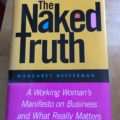What does the parasailer have to do with it? There were three of them, dressed in Santa costumes (we think). Sorry for the shaky camera work – I was filming them from across the lake.
Kids These Days: Italy’s Young People, and Their Manners
Lynn Truss, author of Eats Shoots and Leaves has a new rant out about how the world’s manners are going to pot, and her personal crusade to reverse this phenomenon. I totally sympathize.
I ride the schoolbus in the mornings. That is to say, I take the normal bus line that goes down the hill to Lecco’s railway station, but I happen to take the run that’s scheduled for the benefit of kids going to school. It’s a small bus, and fills up quickly.
Six to eight kids get on at the same stop I do. Even when the bus pulls up with its door right in front of me, they crowd in to get on before me and get seats. A couple of unfortunate older women who get on at later stops have no hope of getting seats, nor does it ever occur to the kids to offer them. A 10-year-old boy who gets on at a stop before mine routinely uses his backpack to hold a seat for a friend. One day an older woman got on, and I suggested to the boy that he give this seat to the lady. He just looked at me as if I was from Mars, and did not even answer. Perhaps his mommy told him not to speak to strangers. (I could have offered the lady my own seat, but she was quickly so hemmed in with backpacks that she probably preferred not to struggle through to it).
Another day he went so far as to reserve two seats. I gently suggested that it would be polite of him to offer one seat to the lady. He stared at me as if “good manners” was a novel concept. I asked him what his mother would think of him not offering a seat. He’s still young enough to respond to this sort of guilt trip so, reluctantly, he complied. He was too shy to tell the lady (she was standing by the door facing the other way), so I called her over and said: “This young gentleman would like to offer you a seat.” She and I smiled at each other complicitly. Later, after he got off, we shook our heads sadly together over the shocking behavior of today’s youth.
Older kids are harder to embarrass. One day, when I had had more than enough of the kids trying to climb in front of me, I spread my arms, blocked the door, and said jokingly (but firmly): “Let the old lady [meaning myself] get a seat.” An adolescent boy took exception to this, and afterwards Ross, when travelling alone, often heard him muttering imprecations about me when he thought she had her iPod on and couldn’t hear him (“That’s the daughter of that bitch…”). Ross told me about this; she was touchingly angry about it (I didn’t care), and considered whether to confront him, or maybe have her older friends beat him up.
No need for violence: Ross is quite scary enough all by herself. One day as we got on the bus together, she leaped on and grabbed a seat, right next to this boy. That was the last seat, so she offered it to me, and stood herself. I hadn’t even noticed the boy when Ross said to him, in a loud and dangerous voice: “Well, you’re sitting right next to my mother now. What are you going to do about it?” He just about sank into the floor. Perhaps that will have cured him of making rude remarks about people’s mothers. <smile>
Riding the Bus
Oct 4, 2006
I wrote last year about the irritations of riding the bus with the schoolkids in the morning. They haven’t learned any more manners this year. As always, they gather where they think the bus doors will be when it stops, then elbow each other to get in first. When I see the bus coming I move in that direction, but consider it beneath my dignity to blatantly step in front of them all – someone’s got to set an example of civilized manners. Once the door is open, I let those ahead of me in “line” board, politely but firmly block anyone else from cutting in front of me (provoking some mutters, which I pretend to ignore), and, when finally on the bus, I give the driver an eye-roll about the kids’ lack of manners.
Evidently he agrees with me. The other morning, the bus pulled up very carefully and stopped a meter short of its usual position – right in front of me. I assumed that this was just coincidence, but as I stepped onto the bus, rightfully before everybody, the driver gave me a complicit grin. I smiled sweetly back. We’d pulled one over on the kids for once.
International Manners
Jan 17, 2006
In response to the above, Rick Freeman wrote:
“We were in Bermuda some while ago, and perhaps the most memorable thing about the trip is the way people acted on the bus … it was beyond manners, more of a whole etiquette dance. Every time there was a stop, the people who sat checked to see who came in and how they ranked. Virtually everyone got up at some point and gave their seat to someone else (older, pregnant, etc.).
Not exactly the most interesting place I’ve visited, but certainly lots of people with good manners.”
More Tips on Getting Better Customer Service
If you’ve been reading this newsletter for a while, you’ll know that customer service is one of my pet peeves – and praises, when somebody actually gets it right.
For my upcoming US trip, I need a cellphone. Actually, three, for the three of us going to Las Vegas for CES, so we can keep track of each other during the show. Though we all have tri-band phones that will work in the US, roaming charges from Italy are ridiculous.
I was astonished to find that there seems to be no way to simply buy a SIM card for whatever service and pop it into the phone I already have, as I did in India. Every US carrier wants me to buy an entirely new phone. This is annoying, since I am used to my own phone and have all my numbers on it. But there appears to be no way around it. US consumers sure put up with a lot of rubbish from their cellphone providers.
I consulted with my group of online experts, who concurred in recommending TracFone, and one even sent me a special free minutes offer. So I went straight to the TracFone site and ordered three cheap cellphones. Or tried to.
As I had been expecting – because it happens so often on US sites – it wouldn’t take my foreign-billed credit card. I could buy the phones from Amazon with any credit card, but that would cost a bit more, as would buying them in a shop.
Stubborn creature that I am, I decided to write to TracFone’s customer service about this. What do I have to lose?
But I knew pretty much what to expect from a low-level customer service rep. So I used an old trick (previously mentioned on my site – see below – and sometimes used on me in my Adaptec/Roxio days). I did a search for “Tracfone CEO” and found out his name. (I also saw, from the press releases mentioning him, that TracFone does a lot of socially-conscious stuff. That made a good impression.)
Now I had to figure out his email address. The address I had, customerservice@tracfone-ild.com, did not look like a corporate HQ adress – some sort of service center. CEO not likely to have email there. I sniffed around some more, found a press release with the email address of a company spokeswoman. Her address was formatted first initial-middle initial-lastname@tracfone.com From that, I could guess the format of the CEO’s email. So I copied my email to customer service to a couple of likely addresses for him. I was polite, and pointed out that they were missing potential business from travellers like myself, coming to the US with a need for a phone.
That was about 11:30 yesterday morning. At 1:20, I received an email from the CEO to someone named Steve, cc’d to me, instructing him to assist me in my purchase. I immediately thanked the CEO and said I was sure I would enjoy doing business with his company.
At 4:30 the same afternoon, I received the expected reply from customer service: “It was managements decision to only accept US based Credit Cards for security and business reasons.”
I’ll give them credit for swiftness of response, though a zero on punctuation (and, of course, helpfulness).
I’m now waiting to see whether Steve manages to pull this off for me. Even if he doesn’t, at least the attitude at the top is the correct one. Who knows, maybe they’ll change their credit card policy and find themselves with a whole new income stream.
later – Steve couldn’t come up with a payment method fast enough to solve the problem, so I’ll just have to buy from a store. He did tell me which were likely to have the largest selection of phones, and that the refill cards I want are also available there. That’s enough of a good-faith effort for TracFone to get my business.
The Science Fiction List
An Internet meme I’ve been meaning to get to for a bit:
“Below is a Science Fiction Book Club list most significant SF novels between 1953-2006. The meme part of this works like so: Bold the ones you have read, strike through the ones you read and hated, italicize those you started but never finished and put a star next to the ones you love.”
1. The Lord of the Rings*, J.R.R. Tolkien (Read many times, though I always said the girls weren’t having enough fun. Now I like the movies better.)
2. The Foundation Trilogy, Isaac Asimov
3. Dune, Frank Herbert (Read the first one, wasn’t impressed, though the discomfort of stillsuits is still vivid in my mind.)
4. Stranger in a Strange Land*, Robert A. Heinlein (I was crazy about Heinlein in high school – I think it’s a phase a lot of kids go through. But I preferred “I Will Fear No Evil”)
5. A Wizard of Earthsea*, Ursula K. Le Guin
6. Neuromancer, William Gibson (One Gibson was enough for me – too pessimistic, no sense of humor.)
7. Childhood’s End*, Arthur C. Clarke (I read this over and over again in Bangladesh, partly because I didn’t have many books. The ending creeped me out every time.)
8. Do Androids Dream of Electric Sheep?*, Philip K. Dick (Read it in high school, need to read it again. Very different from the movie.)
9. The Mists of Avalon*, Marion Zimmer Bradley (Though in the Arthurian vein I prefer Mary Stewart.)
10. Fahrenheit 451*, Ray Bradbury
11. The Book of the New Sun, Gene Wolfe
12. A Canticle for Leibowitz*, Walter M. Miller, Jr.
13. The Caves of Steel, Isaac Asimov
14. Children of the Atom, Wilmar Shiras
15. Cities in Flight, James Blish
16. The Colour of Magic, Terry Pratchett
17. Dangerous Visions*, edited by Harlan Ellison
18. Deathbird Stories, Harlan Ellison
19. The Demolished Man, Alfred Bester
20. Dhalgren, Samuel R. Delany
21. Dragonflight*, Anne McCaffrey (One of my all-time favorites from age 12.)
22. Ender’s Game, Orson Scott Card
23. The First Chronicles of Thomas Covenant the Unbeliever, Stephen R. Donaldson (Didn’t care for these; “The Mirror of Her Dreams” is much better.)
24. The Forever War, Joe Haldeman
25. Gateway, Frederik Pohl
26. Harry Potter and the Philosopher’s Stone*, J.K. Rowling
27. The Hitchhiker’s Guide to the Galaxy, Douglas Adams*
28. I Am Legend*, Richard Matheson
29. Interview with the Vampire, Anne Rice (Well, of course.)
30. The Left Hand of Darkness, Ursula K. Le Guin*
31. Little, Big*, John Crowley
32. Lord of Light*, Roger Zelazny
33. The Man in the High Castle, Philip K. Dick
34. Mission of Gravity, Hal Clement
35. More Than Human, Theodore Sturgeon
36. The Rediscovery of Man, Cordwainer Smith*
37. On the Beach, Nevil Shute
38. Rendezvous with Rama, Arthur C. Clarke
39. Ringworld, Larry Niven
40. Rogue Moon, Algis Budrys
41. The Silmarillion, J.R.R. Tolkien
42. Slaughterhouse-5, Kurt Vonnegut
43. Snow Crash*, Neal Stephenson
44. Stand on Zanzibar*, John Brunner (Preferred his “The Shockwave Rider” – has some lessons for today, I think.)
45. The Stars My Destination, Alfred Bester
46. Starship Troopers, Robert A. Heinlein
47. Stormbringer, Michael Moorcock
48. The Sword of Shannara, Terry Brooks
49. Timescape, Gregory Benford
50. To Your Scattered Bodies Go, Philip Jose Farmer
Wait on – what the hell happened to Brin and Spinrad? How could they not be on this list? And Ted Chiang?
“And a similar meme surrounding female sf/f writers:”
Margaret Atwood (The Handmaid’s Tale)*
Diana Wynne Jones (Everything she’s ever written – and I haven’t read nearly all of it. Original, funny.)
Vonda McIntyre (One great book that I know of – Dreamsnake. After that?)
Robin McKinley (Nowadays my favorite fantasy author.)
Connie Willis (Excellent.)
Winter: Italy’s Less-Travelled Season
^ Premana, December 2003
A great deal of ink has been expended on the glories of Italy in the summertime. Many tourists never see Italy’s winter, which has its own beauties.
This year, it looks as if we’re in for a severe winter (by Italian standards). The higher peaks we can see from our house were not snow-capped by November 1st as they had been the previous two years: “Ognissanti, neve sui canti” goes a local saying – “By All Saints’ Day (Nov 1), snow on the peaks.” Snow began falling Nov 25th, and went on through the 26th, then again the following weekend (considerably reducing the guest list for our dinner party on Dec 3rd). It’s been clear and bitter cold (freezing or below) since, and the forecast is for even colder; I have put on my nice warm Ugg boots and will not be removing them until April!
Most of the snow at lower elevations has melted in the sunshine, but as my train passes through the farmland between Lecco and Milan, the fields and trees are heavily frosted, where thick fog has turned to ice.
Christmas lights and decorations are already up. I put up some strings of white lights as soon as daylight savings went off, to counter the depression of long, dark nights; everyone else seems to have the same instinct. Colored lights are beginning to appear on trees in people’s yards, and this year’s decorative innovation is Santa Claus dolls dangling on ladders from balconies and windows – trying desperately to deliver gifts, one supposes.
The natural world is winding down; my nasturtiums and morning glory vines have frozen and then thawed into soggy messes – although, weirdly, the daffodils are already sprouting leaves. Many Italian gardens contain persimmon trees (cachi – pronounced KAH-ki), which by now have lost all their leaves, so the round, bright orange fruit stands out sharply against the dark brown branches. The problem withcachi, even if you like them (I don’t), is that they ripen pretty much all at once, so for a few weeks everybody who has a tree is drowning in fruit and trying to give it away to everybody else.
It’s time for winter fruits and vegetables: apples, pears, broccoli, artichokes, pumpkin. For my Indian dinner last weekend I experimented with pumpkin samosas, and they were such a big hit that I’ll have to make them again soon.
In our neighborhood, a clear winter day offers the best views of Lake Como and the surrounding mountains, minus the haze that impedes visibility in summer. My digital camera broke back in October, which is very frustrating now that we’re in the best time of year for photographing.
Dec 5th was the feast of San Nicolo’, patron saint of Lecco; the 7th was the feast of Sant’Ambrogio (Ambrose), patron of Milan, and the 8th the Feast of the Immaculate Conception. Public schools in Lecco gave a three-day holiday in the middle of the week, Milanese schools (and many businesses) are off from the 7th through 11th. Ross’ private school is officially closed only for San Nicolo and the Immacolata, but they’re not bothering much with lessons on the other days because so many kids have gone off skiing for the whole week.
As for me, I’ve been working, since I’ll be taking days off later in the month to go to London for a Woodstock alumni gathering, and then Dec 26th I leave for Arkansas, Austin, and Las Vegas (Vegas for the Consumer Electronics Show again, and this year I have to play booth bunny. I’m more or less looking forward to it, but know it will be shatteringly hard work).
In between, we’ll celebrate Christmas at home with our friends Ravil and Amanda – quite a change from last year when, for the first time ever, we had both sides of the family present. However, as Ravil says, we can be loud enough to make up for this year’s slimmer numbers. Especially him and Amanda, who are opera singers.








